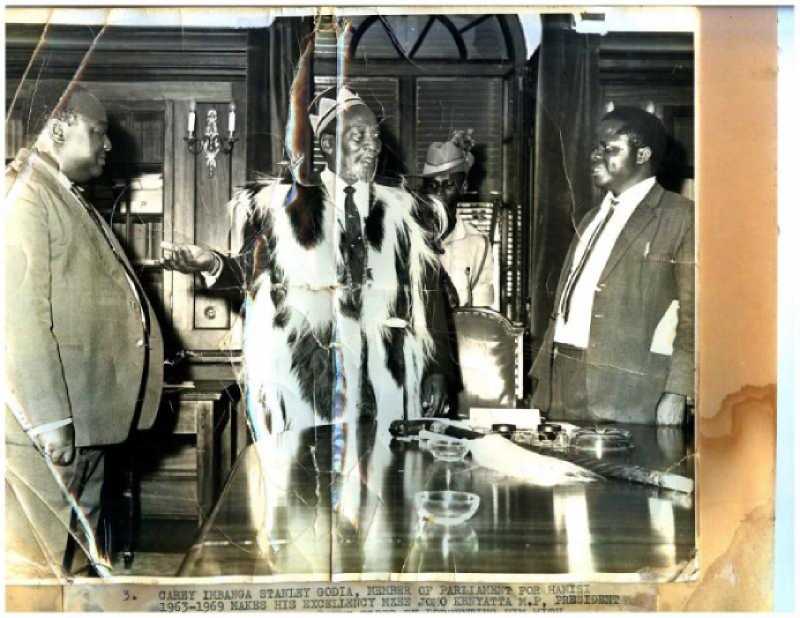×
The Standard e-Paper
Join Thousands Daily

Kenya's First President Jomo Kenyatta chats with the late former Khamisi MP Stanley Godia (Right) and former education minister J.B Otiende (left) in 1964 photo when the president was made a Tiriki elder in then Kakamega district. His death was marked by various emotional songs as the country sunk into sad mood. [File, Standard]
The inimitable Anglican organ melody blasts its way to your heart the moment the stylus contacts the epic “Tribute to Mzee Kenyatta” record manufactured for St Stephen’s church choir by AIT records.